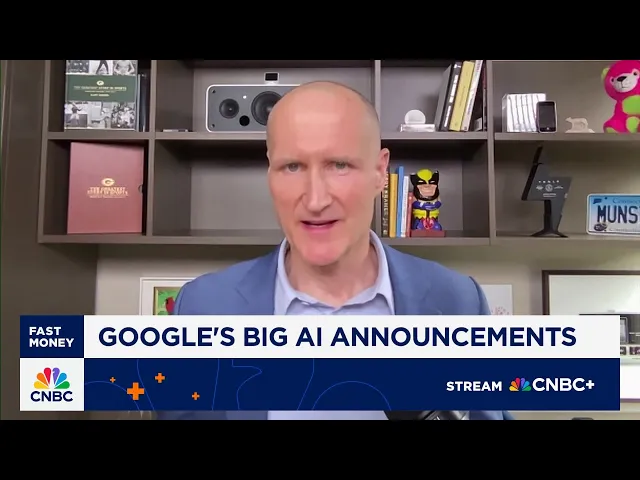‘AI mode’ answers questions of how Google wants to win users, says Deepwater’s Gene Munster

Google's AI mode aims for search dominance
Google's recent launch of its "AI mode" search feature represents the tech giant's latest offensive in the rapidly evolving AI arms race. During a recent CNBC interview, Deepwater Asset Management's Gene Munster offered candid insights into Google's strategic positioning and how this new feature aims to maintain the company's search dominance while fending off Microsoft's Bing and emerging AI threats like ChatGPT. The rollout comes at a critical juncture where Google attempts to blend its traditional search strengths with conversational AI capabilities.
Key elements of Google's AI strategy
-
Google is threading a delicate needle with its AI mode implementation, aiming to enhance search without cannibalizing its primary revenue engine—targeted advertising tied to traditional search results
-
The company faces legitimate competitive pressure from Microsoft's AI-enhanced Bing and OpenAI's ChatGPT, marking the first serious challenge to Google's search dominance in over a decade
-
While the new AI features may improve user experience through summarization and conversational interaction, the fundamental revenue-generating mechanics of Google's business model remain unchanged
The defensive innovation paradox
The most insightful takeaway from Munster's analysis is what I'd call Google's "defensive innovation paradox." Google finds itself in the uncomfortable position of needing to innovate while simultaneously protecting its core business. This isn't just about technology; it's about business model preservation in the face of disruptive change.
The significance of this tension cannot be overstated in today's tech landscape. We're witnessing a classic innovator's dilemma playing out in real-time, where a dominant market leader must respond to potential disruption without undermining its own success. Google generates approximately 80% of its revenue from search advertising, creating powerful institutional resistance to any change that might threaten that income stream, regardless of the long-term strategic benefits.
Beyond the obvious: what the analysis missed
The interview doesn't address how Google's approach to AI differs fundamentally from OpenAI's in terms of risk tolerance. Google has historically been more conservative with AI deployment due to its established brand reputation and regulatory scrutiny. The company's cautious rollout of AI features reflects this institutional culture—prioritizing precision and reliability over cutting-edge capabilities that might introduce errors or
Recent Videos
How To Earn MONEY With Images (No Bullsh*t)
Smart earnings from your image collection In today's digital economy, passive income streams have become increasingly accessible to creators with various skill sets. A recent YouTube video cuts through the hype to explore legitimate ways photographers, designers, and even casual smartphone users can monetize their image collections. The strategies outlined don't rely on unrealistic promises or complicated schemes—instead, they focus on established marketplaces with proven revenue potential for image creators. Key Points Stock photography platforms like Shutterstock, Adobe Stock, and Getty Images remain viable income sources when you understand their specific requirements and optimize your submissions accordingly. Specialized marketplaces focusing...
Oct 3, 2025New SHAPE SHIFTING AI Robot Is Freaking People Out
Liquid robots will change everything In the quiet labs of Carnegie Mellon University, scientists have created something that feels plucked from science fiction—a magnetic slime robot that can transform between liquid and solid states, slipping through tight spaces before reassembling on the other side. This technology, showcased in a recent YouTube video, represents a significant leap beyond traditional robotics into a realm where machines mimic not just animal movements, but their fundamental physical properties. While the internet might be buzzing with dystopian concerns about "shape-shifting terminators," the reality offers far more promising applications that could revolutionize medicine, rescue operations, and...
Oct 3, 2025How To Do Homeless AI Tiktok Trend (Tiktok Homeless AI Tutorial)
AI homeless trend raises ethical concerns In an era where social media trends evolve faster than we can comprehend them, TikTok's "homeless AI" trend has sparked both creative engagement and serious ethical questions. The trend, which involves using AI to transform ordinary photos into images depicting homelessness, has rapidly gained traction across the platform, with creators eagerly jumping on board to showcase their digital transformations. While the technical process is relatively straightforward, the implications of digitally "becoming homeless" for entertainment deserve careful consideration. The video tutorial provides a step-by-step guide on creating these AI-generated images, explaining how users can transform...
